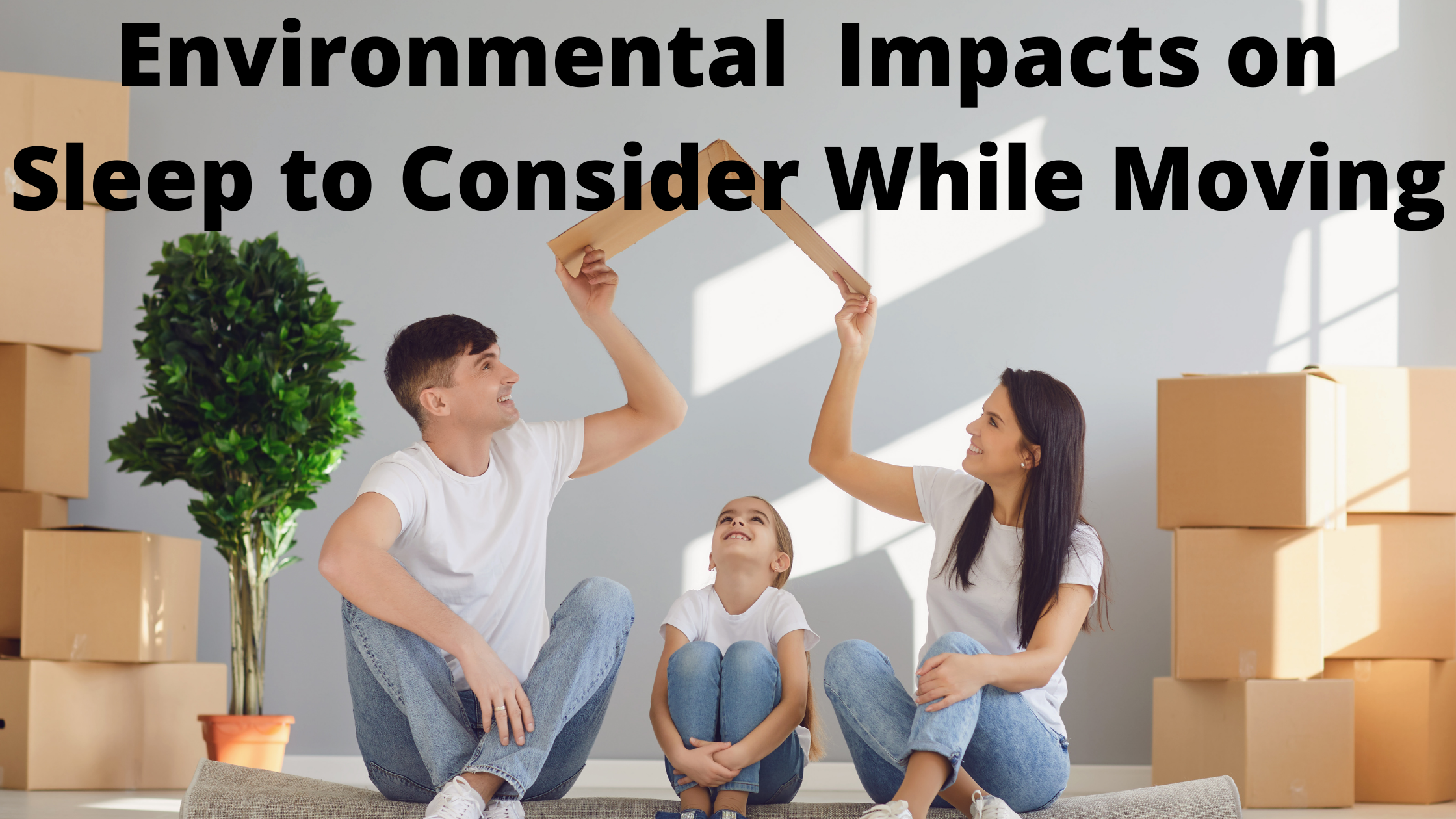
When you are looking to buy a home or rent a place to stay, an important factor should be how much the environment helps you with your sleep. When figuring out where to live, your sleep may be one of the last things that's considered, if it even is considered.
However, sleep is such a vital part of our lives that it should be one of the most considered things when deciding where to live. There are many environmental factors that can impact our sleep quality. Therefore, wherever we decide to live has a tremendous impact on our ability to sleep. Here are the top things that can impact your sleep and should be considered when looking for a place to live.
Light exposure
This can take place in the form of artificial or natural light. However, too much exposure to light can significantly impact our ability to get good sleep. Our bodies are controlled by our circadian rhythm, and our circadian rhythms are controlled by our eyes' exposure to light. When our eyes are exposed to light, our brain stops producing melatonin.
Our cortisol levels spike and signal to the rest of our body that it's time to get up. In the evenings, the opposite happens. Our eyes don't receive a lot of light and therefore start to produce melatonin, which signals to our body that it's time to start shutting things down to get ready for bed.
When you're going to bed, you want your room to be as dark as possible because any exposure to light can disrupt melatonin production in the brain.
If you live near the city, then you risk being exposed to city lights, building lights, and any other lights that may stream through your windows. If you live somewhere like Alaska, where there are several months out of the year when the majority of the day is spent with the sun up, then there is another opportunity for light to disrupt your ability to get good sleep.
So light exposure should be something that is on your list when you are deciding where to live. If you are living somewhere where you will be exposed to a lot of light during the hours when you should be trying to go to bed, then you should come up with some sort of plan to combat that, such as blackout curtains.
On the flip side of that, you need exposure to light to wake up in the morning. So if you live somewhere where it's dark or continuously raining, such as the Pacific Northwest or Alaska during the winter months, that is also something to take into consideration. You may need brighter lights in your home that are on a timer to turn on early in the morning, or some way to get exposure to light so that your circadian rhythm can begin to normalize.
Noise
When you are asleep, it should be completely silent. Noises risk activating the brain and interrupting your ability to stay asleep. Living in the city can expose you to the natural noises of so many people being in one small area.
If you live next to a highway, or a busy street, or any sort of building that may stay open late playing loud music, then that can lead to disruptions while trying to get good sleep. If you live in an apartment building and you have loud neighbors, this can also be a way that you are disrupted at night.
If you are unable to choose to live somewhere that is quieter, there are interventions that you can do to make your room quieter, specifically. White noise machines can work to block out the noise in the background without disrupting your sleep. Soft music may also be an option, but you may need to put it on a timer as it can become disruptive throughout the night. Earplugs may be another option, but they also may be uncomfortable, so it may have to be something that you try out.
While you are deciding where to live, try to determine if it's going to be somewhere that's very loud at all times of the day or if it's somewhere that is fairly quiet.
Safety
Safety should be a quality that you consider in general, but it's hard to get a good night's sleep if you are anxious about your surroundings. When you go to sleep, if your mind is worried or ruminating over something, such as the fear of someone breaking in or a crime happening somewhere near your living space, then that can make it very hard to relax enough to go to sleep.
Check to see the safety ratings around you, and if there are a lot of crimes that happened, especially at night. Also, see what the response rate is for emergency services such as the police. You may not always have a choice in where you get to live, so the best way to try to relieve any anxiety or stress you may feel while going to sleep is by investing in a security monitoring system. Also, making sure that your locks are deadbolted and even purchasing a security door stopper can make it easier for you to relax enough to go to sleep.
Hopefully, all of these environmental factors are things that you can think about when you are deciding where you would like to live. If you consider these factors but still have trouble sleeping, then the next best thing may be to reach out to a sleep health professional by clicking the orange button below and taking our free online sleep test.
This will connect you with one of our sleep health professionals who can decide if your sleep troubles are due to an underlying issue or something more manageable, such as an environmental change.
https://www.sleepfoundation.org/sleep-news/best-worst-cities-for-sleep

